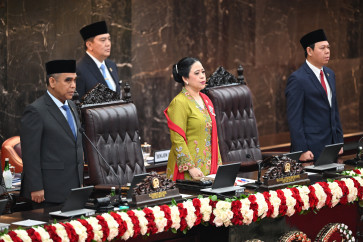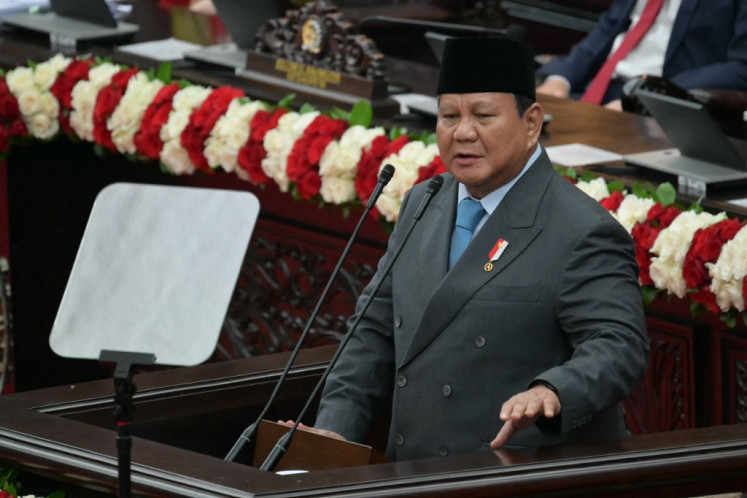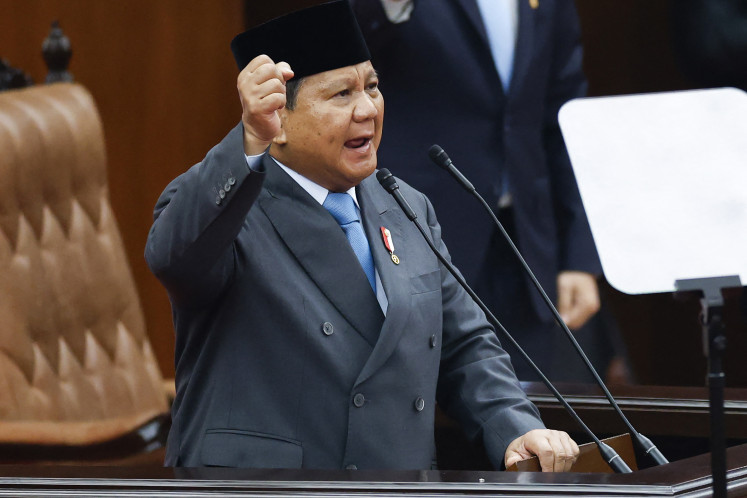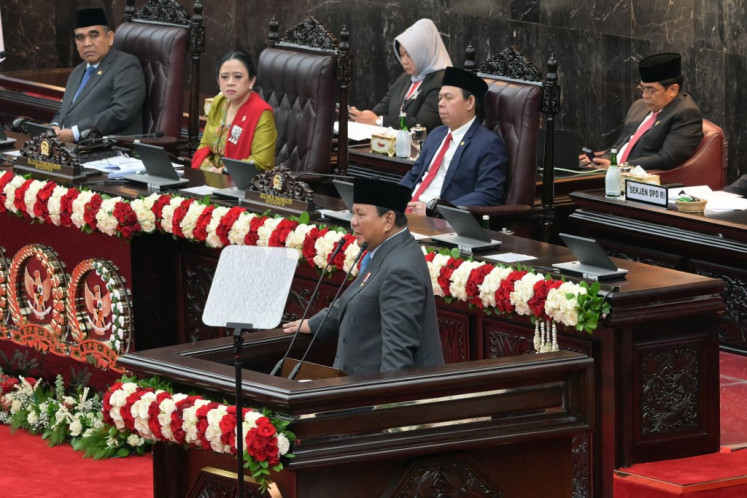Popular Reads
Top Results
Can't find what you're looking for?
View all search resultsPopular Reads
Top Results
Can't find what you're looking for?
View all search resultsNadiem ‘committed to bridging accessibility gap’ in online learning
“We have no other option but to adapt and innovate, turning disruption into solutions,” said Nadiem on Wednesday.
Change text size
Gift Premium Articles
to Anyone
T
he government will continue to “adapt and innovate” in light of the current technological disruption in the education sector, including addressing challenges in online learning in the country, Education, Culture, Research and Technology Minister Nadiem Makarim has said.
Speaking during the International Symposium on Open, Distance and E-Learning (ISODEL), Nadiem said the disruption brought about by technology could be part of the solution for some of the country’s issues in the education sector, adding that the government was committed to expanding access to technology for students across the country.
“We have no other option but to adapt and innovate, turning disruption into solutions,” said Nadiem on Wednesday. “We are committed to not only expanding access to technology [for students], but also to bridge the knowledge and technological skills gap.”
He went on to say that the government, under the Merdeka Belajar (Freedom to Learn) initiative, had distributed computers, laptops, routers and projectors, all of which are geared toward assisting online learning sessions for schools across the country, in particular in its far-flung regions.
The Merdeka Belajar was one of Nadiem’s key educational reform policies after he assumed the Cabinet position in 2019 that was primarily aimed at reducing teachers’ administrative burdens while giving them more freedom and responsibility in assessing students.
Read also: Teachers welcome education reform plans, but devil is in details
He said the government had also set up an online platform for teachers to share tips and study materials as part of efforts to improve teachers’ skills in teaching online.
Nadiem, who was a former executive of homegrown start-up Gojek, went on to add that the ministry was currently working on Indonesia’s first “education super-app”, slated to be launched by the end of this year, without providing further details.
“With these digitalization programs for school and the Merdeka Belajar program, I am certain that Indonesia’s education system will become more relevant and adaptive to the changing times,” said Nadiem.
The lack in teachers’ digital literacy skills, as pointed out by Nadiem, has been one of the constant problems that have plagued online learning in the country, sparking concerns about a learning loss among students.
While teachers have been shown to be competent in some aspects of online learning, such as selecting and sharing resources, they appeared to be lacking in other aspects, such as competence in modifying their resources and creating new teaching content, according to preliminary survey by Abi Sujak, a researcher from the ministry’s data and information center.
Abi, who also spoke during ISODEL, said that the findings showed that teachers were struggling to provide meaningful education during online learning, as they would often resort to one-way interaction by simply disseminating information to their students. He, however, said that the findings were still not conclusive as the survey was still in the preliminary stage.
Read also: Teachers call for technological, pay equity amid pandemic strain
Finance Minister Sri Mulyani Indrawati similarly concluded that not all schools and teachers were adequately prepared for online learning in response to the pandemic, which she said posed a challenge to the country’s ambitions to develop its human capital.
She said the government was focused on finding solutions for the problems, including by allocating additional funds from the state budget to bring stable internet connections to around 20,000 villages throughout the country that were still off the grid.
She also reaffirmed that education remained one of the government’s top priorities, pointing out that it consistently allocated 20 percent of its budget for the sector, as mandated by the 1945 Constitution. In 2021, Rp 550 trillion (US$ 38.25 billion) has been allocated for education.
“Investment in human capital is not a choice, but it is mandatory for a country to advance on its own journey to search for a better livelihood,” said Sri Mulyani, who also attended the symposium. “The challenge now is how we are going to use this funding and budget to achieve the best results.”










